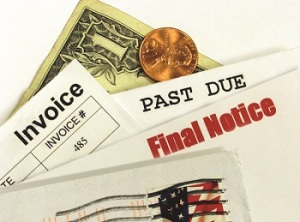 Today’s top story: 7 ways small-business owners can save on taxes in 2022. Also in the news: Check your DMs for debt collectors and scams, coupling your finances for Valentine’s Day, and how one couple reconciled their relationship with money.
Today’s top story: 7 ways small-business owners can save on taxes in 2022. Also in the news: Check your DMs for debt collectors and scams, coupling your finances for Valentine’s Day, and how one couple reconciled their relationship with money.
7 Ways Small-Business Owners Can Save on Taxes in 2022
Seven things entrepreneurs and independent workers can do to lower their tax bills and their anxiety this filing season and in the year ahead.
Check Your DMs for Debt Collectors and Scams
Sites like Instagram, Facebook and Twitter could be where debt collectors slide into your DMs.
For Valentine’s Day, Couple Your Finances
Money coaches discuss how couples can combine finances and bank accounts while balancing autonomy and partnership.
How My Fiance and I Reconciled Our Relationships With Money
When differing financial attitudes collide, communicating openly is the best way to bridge the divide.
 Today’s top story: What new debt collector rules mean for you. Also in the news: A new episode of the Smart Money podcast on holiday travel and giving money advice to family, what to buy (and skip) on Black Friday, and questions to ask your realtor when selling your home.
Today’s top story: What new debt collector rules mean for you. Also in the news: A new episode of the Smart Money podcast on holiday travel and giving money advice to family, what to buy (and skip) on Black Friday, and questions to ask your realtor when selling your home. Today’s top story: The upsides to thinking about when you will die. Also in the news: The upside to ETFs, how debt collectors are invading social media, and 6 financial military benefits for service members and veterans.
Today’s top story: The upsides to thinking about when you will die. Also in the news: The upside to ETFs, how debt collectors are invading social media, and 6 financial military benefits for service members and veterans.  Today’s top story: Start thinking bankruptcy now to maximize your options later. Also in the news: Why this is the perfect time to teach teens about credit, how to protect your stimulus relief check from debt collectors, and how to return a deceased relative’s stimulus check.
Today’s top story: Start thinking bankruptcy now to maximize your options later. Also in the news: Why this is the perfect time to teach teens about credit, how to protect your stimulus relief check from debt collectors, and how to return a deceased relative’s stimulus check.  Today’s top story: Letting go of shame over your debt. Also in the news: How to get the highest credit card welcome bonuses, 3 tax mistakes you’re probably making today, and what to do when debt collectors keep calling for someone else.
Today’s top story: Letting go of shame over your debt. Also in the news: How to get the highest credit card welcome bonuses, 3 tax mistakes you’re probably making today, and what to do when debt collectors keep calling for someone else. Today’s top story: Is better credit worth exposing your banking data? Also in the news: The average 401(k) balance by age, 8 common and costly homebuying myths, and why debt collectors may soon be able to text you.
Today’s top story: Is better credit worth exposing your banking data? Also in the news: The average 401(k) balance by age, 8 common and costly homebuying myths, and why debt collectors may soon be able to text you.  Today’s top story: 5 things debt collectors can’t do – and 5 they can. Also in the news: The pros and cons of dropshipping, protecting intellectual property, and how to choose a rewards credit card.
Today’s top story: 5 things debt collectors can’t do – and 5 they can. Also in the news: The pros and cons of dropshipping, protecting intellectual property, and how to choose a rewards credit card. Today’s top story: Why you should validate a debt before paying a collector. Also in the news: How to choose a Medicare Advantage plan, how and when to report tips for tax purposes, and how people survived their financial nightmares.
Today’s top story: Why you should validate a debt before paying a collector. Also in the news: How to choose a Medicare Advantage plan, how and when to report tips for tax purposes, and how people survived their financial nightmares.  Today’s top story: What your high schooler needs to know about credit cards. Also in the news: Saying goodbye to foreign transaction fees, the new calling limits facing debt collectors, and how letting your adult child stay home could benefit you financially.
Today’s top story: What your high schooler needs to know about credit cards. Also in the news: Saying goodbye to foreign transaction fees, the new calling limits facing debt collectors, and how letting your adult child stay home could benefit you financially.